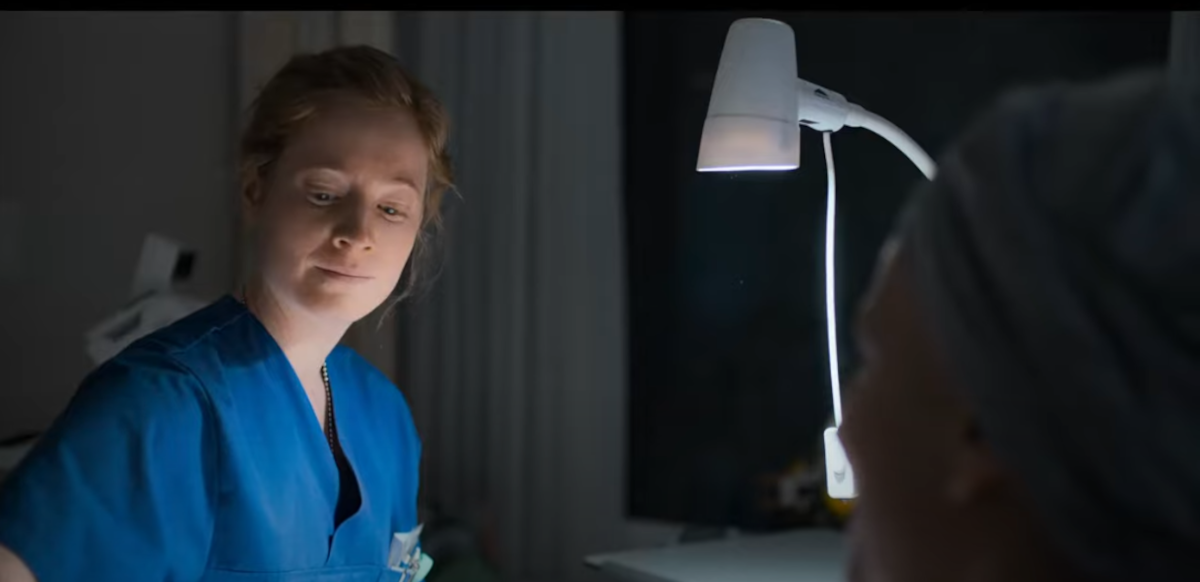This general thematic point is driven home by the stream of Steadicam shots following our harried heroine Floria from ward to ward, as she strides down a labyrinth of whitewashed corridors so she doesn’t stagger down them, so great is the work burden on her narrow shoulders. The setting is bland and inoffensively colourless, evoking the institutional mood so strongly you can almost smell the disinfectant.
Emilie Levienaise-Farrouch’s lonely, minimalist music score (seldom more than a piano or a mournful string section in any given passage) keeps the film’s pulse relatively steady, although there are erratic half-beats suggesting the possibility of arrhythmia, and the odd diversion into a major key colours in the altruism underpinning the main character and all those like her.Stark daylight sears the celluloid in the early establishing scenes, leaving little room for shadowy nuance in the perpetual motion of this noble yet exhausting profession. Floria is all business, and so is the picture. However, as the night comes down and the artificial strip lighting starts cooking, Benesch starts introducing a few moments of unguarded warmth, ensuring that her descent into quotidian purgatory is a journey we’re more than willing to share.
Some small signifiers of an incipient nervous breakdown are visible – a twitching finger, a desperate glug from her water bottle, an elevator ride in which she clings to the handrail for dear life – but she’s careful not to let it dominate a story that hews this close to its clinical-handwash-basin realism. After all, she’s far too competent to do any of this in front of her patients – well okay, there is one brief, glorious, Howard Beale-style crack-up, but the guy on the receiving end was lucky not to get a smack in the chops anyway.A nurse’s struggle to maintain both her own sanity, and the doddering structures within which she works, makes for a story anyone with an unselfish bone in their body can identify with. Late Shift boils down the agonisingly slow decline of a system built on social consensus to its base elements, organises them into a somewhat contrived plot that functions as a kind of ‘documentary thriller’, and ultimately succeeds in mobilising our sadly unfashionable sympathy with an underdog who’s not allowed to bark, no matter how badly we want her to.
-Stew Mott-




